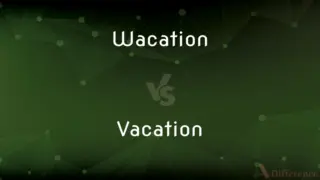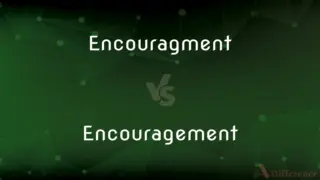Losed vs. Lost — Which is Correct Spelling?
Edited by Tayyaba Rehman — By Fiza Rafique — Updated on March 22, 2024
"Losed" is incorrect, and "Lost," denoting something that is no longer present or possessed, is the correct spelling and term.
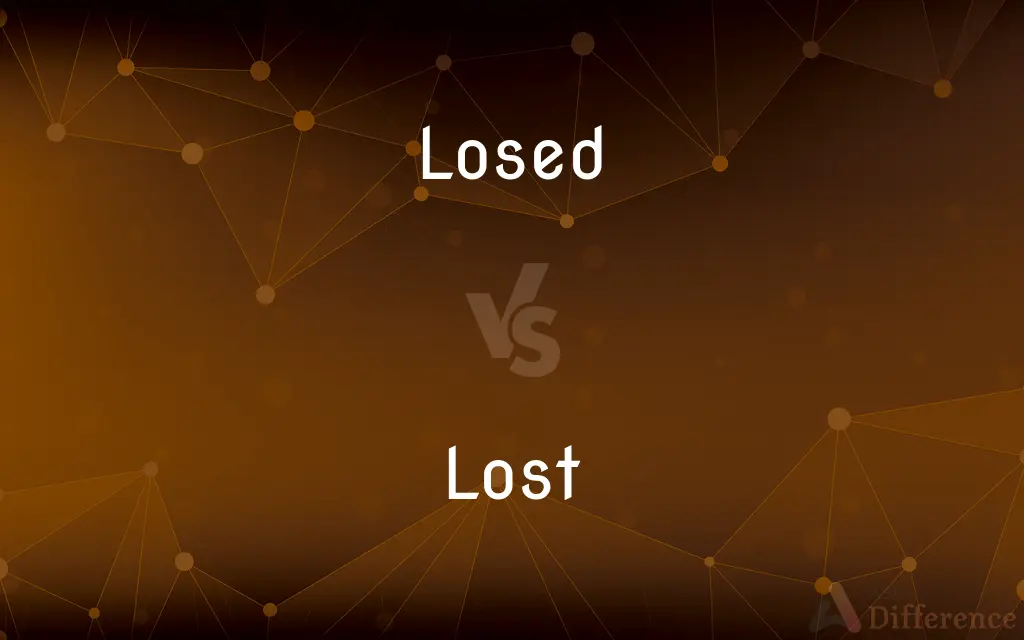
Table of Contents
Which is correct: Losed or Lost
How to spell Lost?

Losed
Incorrect Spelling

Lost
Correct Spelling
ADVERTISEMENT
Key Differences
Think of the movie title "Lost in Translation" or the TV show "Lost".
Remembering the spelling "Lost" may involve considering familiar phrases like “lost and found.”
You might also think of common words it rhymes with, like “cost” or “frost.”
Lastly, note that "Lost" is past tense, aligning with its meaning referring to something in the past.
How Do You Spell Lost Correctly?
Incorrect: I losed my keys somewhere in the park.
Correct: I lost my keys somewhere in the park.
ADVERTISEMENT
Incorrect: She felt like she losed the competition before it even started.
Correct: She felt like she lost the competition before it even started.
Incorrect: They losed the game by just one point.
Correct: They lost the game by just one point.
Incorrect: We losed a lot of time stuck in traffic.
Correct: We lost a lot of time stuck in traffic.
Incorrect: He losed interest in the project after a few weeks.
Correct: He lost interest in the project after a few weeks.
Lost Definitions
No longer in possession due to unforeseen circumstances.
I lost my keys.
Unable to find one's way; not knowing one's whereabouts.
We got lost in the city.
Unable to recover something past.
Lost time is never found again.
Past tense and past participle of lose.
Unable to find one's way
A lost child.
No longer in the possession, care, or control of someone or something
A lost pen.
No longer in existence; vanished or spent
Lost youth.
No longer known or practiced
A lost art.
Beyond reach, communication, or influence
The expedition was lost to the world for two months.
Not used to one's benefit or advantage
A lost opportunity.
Having not been or unlikely to be won; unsuccessful
A lost battle.
A lost cause.
Beyond recovery or redemption; fallen or destroyed
A lost soul.
Completely involved or absorbed; rapt
Lost in thought.
Bewildered or confused
I'm lost—can you start over?.
Simple past tense and past participle of lose
Having wandered from, or unable to find, the way.
The children were soon lost in the forest.
In an unknown location; unable to be found.
Deep beneath the ocean, the Titanic was lost to the world.
Not perceptible to the senses; no longer visible.
An island lost in a fog; a person lost in a crowd
Parted with; no longer held or possessed.
A lost limb; lost honour
Not employed or enjoyed; thrown away; employed ineffectually; wasted; squandered.
A lost day; a lost opportunity or benefit; no time should be lost
Ruined or destroyed, either physically or morally; past help or hope.
A ship lost at sea; a woman lost to virtue; a lost soul
Hardened beyond sensibility or recovery; alienated; insensible.
Lost to shame; lost to all sense of honour
Occupied with, or under the influence of, something, so as not to notice external things.
To be lost in thought
Parted with unwillingly or unintentionally; not to be found; missing; as, a lost book or sheep.
Parted with; no longer held or possessed; as, a lost limb; lost honor.
Not employed or enjoyed; thrown away; employed ineffectually; wasted; squandered; as, a lost day; a lost opportunity or benefit.
Having wandered from, or unable to find, the way; bewildered; perplexed; as, a child lost in the woods; a stranger lost in London.
Ruined or destroyed, either physically or morally; past help or hope; as, a ship lost at sea; a woman lost to virtue; a lost soul.
Hardened beyond sensibility or recovery; alienated; insensible; as, lost to shame; lost to all sense of honor.
Not perceptible to the senses; no longer visible; as, an island lost in a fog; a person lost in a crowd.
Occupied with, or under the influence of, something, so as to be insensible of external things; as, to be lost in thought.
People who are destined to die soon;
The agony of the doomed was in his voice
No longer in your possession or control; unable to be found or recovered;
A lost child
Lost friends
His lost book
Lost opportunities
Having lost your bearings; confused as to time or place or personal identity;
I frequently find myself disoriented when I come up out of the subway
The anesthetic left her completely disoriented
Spiritually or physically doomed or destroyed;
Lost souls
A lost generation
A lost ship
The lost platoon
Not gained or won;
A lost battle
A lost prize
Incapable of being recovered or regained;
His lost honor
Not caught with the senses or the mind;
Words lost in the din
Deeply absorbed in thought;
As distant and bemused as a professor listening to the prattling of his freshman class
Lost in thought
A preoccupied frown
No longer known; irretrievable;
A forgotten art
A lost art
Lost civilizations
Perplexed by many conflicting situations or statements; filled with bewilderment;
Obviously bemused by his questions
Bewildered and confused
A cloudy and confounded philosopher
Just a mixed-up kid
She felt lost on the first day of school
Unable to function; without help
Having died or been destroyed.
Many lost their lives in the war.
No longer held or maintained.
He lost his position.
Lost Meaning in a Sentence
She lost her way in the new city but found an interesting cafe.
The team lost their first match but won the tournament.
They lost their dog in the park, but luckily someone found him.
He lost his ticket and couldn't attend the show.
She lost her voice after screaming at the concert.
I lost interest in the movie because it was too predictable.
She lost a tooth playing soccer and was excited for the tooth fairy.
He lost the bet and had to do the dishes for a week.
I lost my favorite book and can't find it anywhere.
After the argument, he felt like he lost a friend.
We lost the chance to see the shooting stars due to clouds.
They lost their luggage during the flight but got it back later.
I lost track of time reading my favorite book.
He lost the debate but learned a lot from the experience.
The hiker lost his compass but still found his way back.
They lost power during the storm but made the best of the evening.
I lost patience waiting in the long line.
She lost her earring at the beach but miraculously found it.
She lost her balance but didn't fall down.
The family lost their home in the fire but remained hopeful.
Lost Idioms & Phrases
Lost cause
A situation or person that cannot be helped or improved.
Trying to fix that old car is a lost cause.
Lost in thought
To be so focused on one's thoughts that one is unaware of their surroundings.
She was so lost in thought that she missed her bus stop.
Lost for words
Unable to speak due to surprise, shock, or being impressed.
Seeing the Grand Canyon for the first time, I was lost for words.
Lost and found
A place where lost items are kept to be claimed by their owners.
He found his lost backpack in the lost and found.
Get lost!
An impolite way of telling someone to go away.
Frustrated with the interruption, she told him to get lost!
All is not lost
Even though there has been a setback, not everything is ruined.
Despite the mistakes, all is not lost; we can still turn this project around.
A lost art
A skill or craft that is no longer widely practiced.
Handwriting letters is becoming a lost art.
Lost in translation
When the original meaning is not effectively conveyed when translating from one language to another.
Some of the jokes were lost in translation.
No love lost
When two people do not like each other.
Between the two rivals, there was no love lost.
Common Curiosities
Why is it called Lost?
"Lost" is derived from the Old English "losian," meaning to lose.
What is the pronunciation of Lost?
"Lost" is pronounced [lɒst] or [lɔst].
What is the verb form of Lost?
"Lost" is the past tense and past participle of the verb "lose."
Which vowel is used before Lost?
"O" (o lost).
What is the plural form of Lost?
Lost has no plural form as it’s not used as a noun.
What is the root word of Lost?
The root word is the Old English "losian."
Is Lost an adverb?
No.
What is the singular form of Lost?
Lost.
Is Lost a noun or adjective?
Lost can be an adjective.
Is Lost a countable noun?
No.
Is the word Lost imperative?
No.
Is the word “Lost” a Direct object or an Indirect object?
It can serve as a direct object.
How many syllables are in Lost?
One.
How do we divide Lost into syllables?
Lost is one syllable and is not divided.
What is the opposite of Lost?
Found.
Which determiner is used with Lost?
"The" can be used (the lost).
Which preposition is used with Lost?
"In" (lost in thought).
Which conjunction is used with Lost?
"And" (lost and found).
Is Lost an abstract noun?
No.
What is the first form of Lost?
Lose.
Is Lost a negative or positive word?
Generally negative.
What part of speech is Lost?
Adjective or verb.
What is another term for Lost?
Misplaced.
What is the second form of Lost?
Lost.
Is Lost a vowel or consonant?
It is a word, containing both vowels and consonants.
Is the word Lost a Gerund?
No.
What is a stressed syllable in Lost?
Lost is one syllable and it is stressed.
How is Lost used in a sentence?
"I lost my wallet on the way home."
Which article is used with Lost?
"The" (the lost item).
Is Lost a collective noun?
No.
Is the Lost term a metaphor?
It can be used metaphorically.
What is the third form of Lost?
Lost.
Share Your Discovery
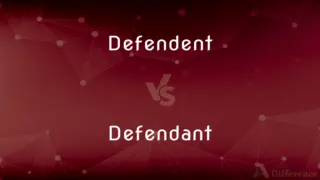
Previous Comparison
Defendent vs. Defendant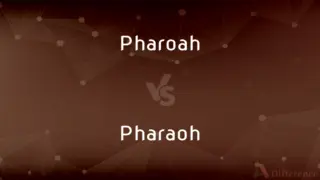
Next Comparison
Pharoah vs. PharaohAuthor Spotlight
Written by
Fiza RafiqueFiza Rafique is a skilled content writer at AskDifference.com, where she meticulously refines and enhances written pieces. Drawing from her vast editorial expertise, Fiza ensures clarity, accuracy, and precision in every article. Passionate about language, she continually seeks to elevate the quality of content for readers worldwide.
Edited by
Tayyaba RehmanTayyaba Rehman is a distinguished writer, currently serving as a primary contributor to askdifference.com. As a researcher in semantics and etymology, Tayyaba's passion for the complexity of languages and their distinctions has found a perfect home on the platform. Tayyaba delves into the intricacies of language, distinguishing between commonly confused words and phrases, thereby providing clarity for readers worldwide.






























